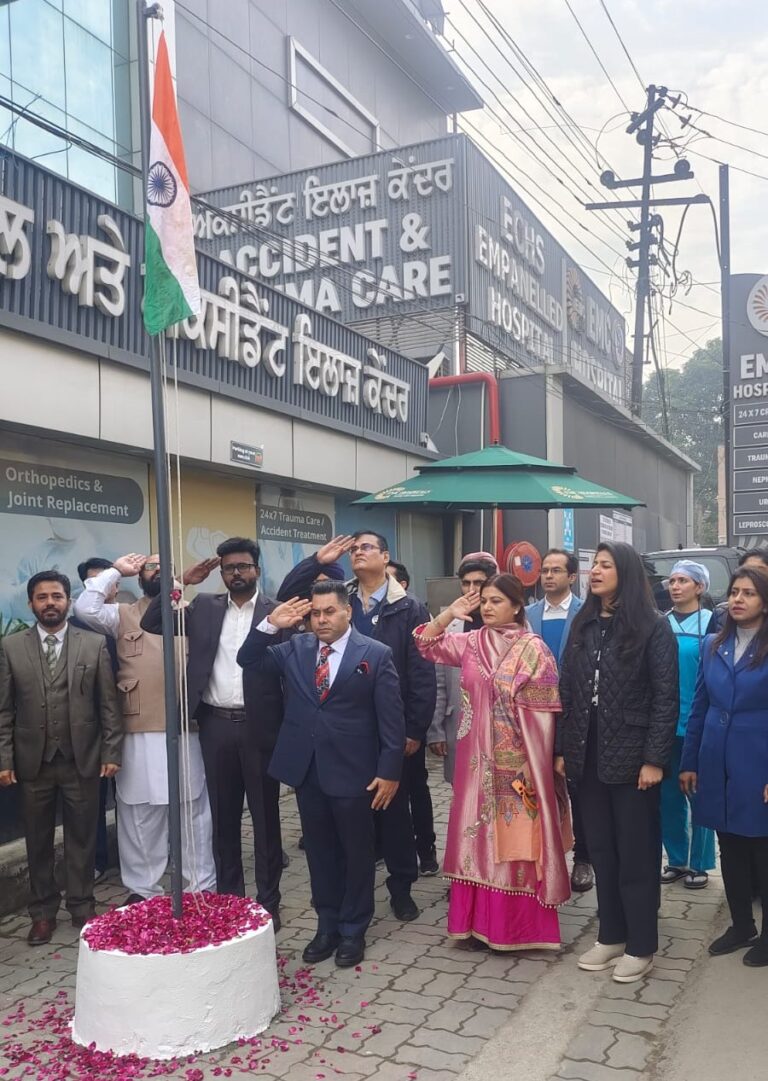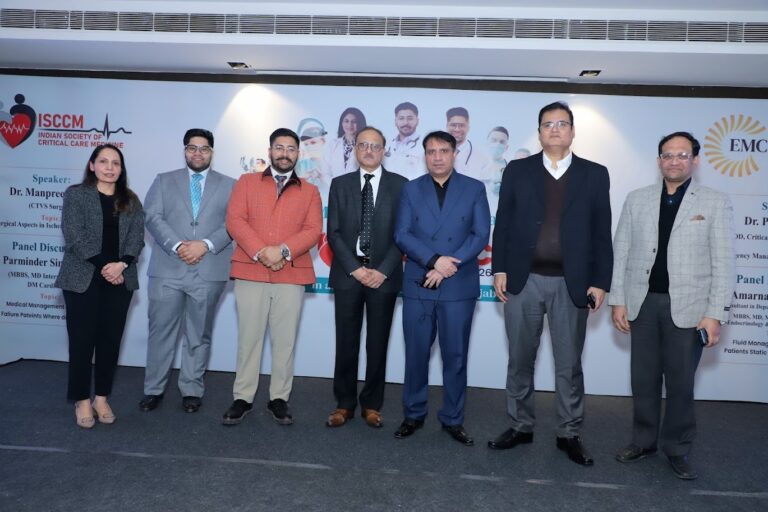Pulse Hospital (A Unit of EMC Hospitals): Wrist Pain – Common Causes, Management, and When to See a Doctor
In today’s busy and technology-driven lifestyle, wrist pain has become a common yet serious issue. Prolonged use of mobile phones or computers, repetitive hand movements, sports activities, lifting heavy objects, or injuries can put excessive strain on the wrist, leading to pain and swelling.

According to Dr. Prabhjot Singh, a renowned specialist at Pulse Hospital (A Unit of EMC Hospitals), Amritsar, wrist pain is not always a temporary discomfort—it can sometimes indicate an underlying medical condition. The major causes include injury, sprain, arthritis, carpal tunnel syndrome, tendinitis, gout, osteoporosis, and nerve compression.
Wrist pain may begin suddenly after a fall or excessive pressure on the hand, while in other cases, it develops gradually and persists for months. Early symptoms often include pain, swelling, stiffness, burning sensation, tingling, and weak grip strength. In some cases, the pain worsens at night or is accompanied by numbness in the fingers, which can be a sign of carpal tunnel syndrome.
Dr. Singh explains that the first step in managing wrist pain is to give the affected area adequate rest and avoid any kind of strain. Cold or hot compresses, gentle physiotherapy, wrist support bands, and limited use of pain-relief medication can provide significant relief. For individuals who spend long hours typing or using mobile phones, taking frequent breaks for wrist stretching and maintaining a proper posture is essential.
If the pain does not subside within seven to ten days, or if symptoms like swelling, redness, numbness, or weak hand grip appear, one should consult a specialist doctor immediately. Ignoring such symptoms may lead to permanent damage or even require surgical intervention.
At Pulse Hospital, Amritsar, advanced diagnostic facilities such as X-ray, MRI, and ultrasound are available for accurate evaluation of wrist conditions. The hospital’s team of experts designs personalized treatment plans for each patient, which may include medication, physiotherapy, injection therapy, or surgery, depending on the severity.
Dr. Prabhjot Singh emphasizes, “Wrist pain should never be ignored, as it can permanently affect hand functionality. With timely diagnosis and appropriate treatment, the condition can be completely resolved.”
Pulse Hospital, Amritsar combines modern medical technology with an experienced team of specialists to deliver advanced and safe treatment. The hospital’s mission is to help every individual live a pain-free, active, and healthy life without limitations in daily activities.






